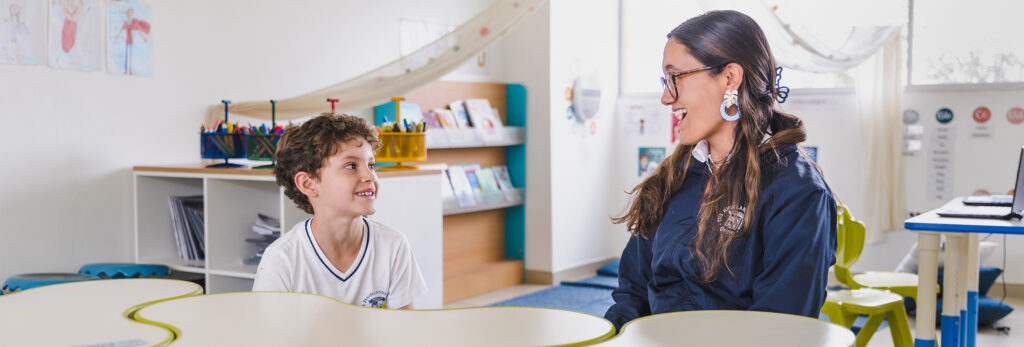How to Prepare Your Child for the Arrival of a Sibling
By: Psych. Dominique Valencia – DECE
When a younger sibling is born, children may experience fear of losing their parents’ affection or being replaced. Their reaction will depend on how the bond with their primary caregivers has been built. There are several things we can do to make the transition to this change easier and more manageable for everyone involved.
Below are some important points to keep in mind when a new family member is on the way.
Explain to your child that during the first few months, the baby will only eat, sleep, and cry most of the time, so it won’t be able to be a playmate.
If your child needs to change rooms or leave the crib, it’s essential to do so a few months before the baby arrives. This will help them get used to the change before facing the arrival of the new family member.
Arrange who will take care of your older child while you are in the hospital. It is recommended to talk to your child and let them know that you will be away for a few days, assuring them that you will see each other soon. Scheduled phone calls can help manage their anxiety about seeing you if visiting the hospital is not possible.
Create quality moments to share with your older child. This will provide security and strengthen the secure bond with their parents.
It’s important to involve your child in baby care activities but not give them a responsibility over it. Your child can participate in activities like bathing, changing diapers, or feeding the baby if they wish. Praise them when they interact positively with the baby.
Let your child know the things they can do as the older sibling while the baby cannot. This will make them feel proud.
When there are visitors, it’s recommended to have the older sibling introduce the baby. This way, they will feel included in the meeting.
Read stories about the arrival of the baby or about sibling jealousy to help your child process their emotions.
If you notice a change in attitude to seek attention from parents or relatives, ignore the behavior when possible and praise positive actions.
Ask your child how they feel and create daily dialogue spaces to strengthen your bond and maintain assertive communication. It’s important to articulate their feelings so they can better manage everything happening around them.
It’s crucial to remember that no one is fully prepared for the arrival of a new family member. Emotions fluctuate continuously, and maintaining a support system during this change is necessary. Being flexible and listening to what our children are trying to communicate is the key.



